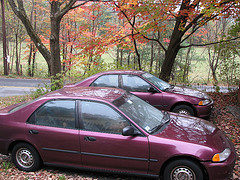
Leave it to LA to find a way to combine efficiency, sex, and eco-street cred. In the city of instant gratification, there’s now an easy way to determine if that cute guy at the gym will build a LEED-rated home with you: green speed dating!
Jenean Smith, founder of the Green Speed Dating website, came up with the idea while brainstorming ways to raise money to install solar panels at a rural school in Nicaragua. “One day—I have no idea why—I said, you know what the world really needs? Green speed dating!” She set up an event in Santa Monica, where for $20 participants could spend three minutes on green mini-dates. Eco-conscious Angelenos couldn’t get enough. “There’s all these green singles’ sites that don’t have enough people on them, and there’s regular speed-dating where you don’t know who you’re going to meet,” says Smith. “People liked that this was a green event for a good cause.”
And how did the LA speed-daters evaluate their potential partners’ green-ness? By asking what they drove, of course! One lucky guy narrowly escaped having to admit he owned an SUV; another found his bicyling habit made him a little too green for most dates. NPR caught some of the oh-so-awkward car convos; listen yourself here.
Okay, okay, so only in LA would cars be the focus of a green dating event. (To each his own: Portland, OR offers bicycle speed dating.) But the cause is indeed worthy, and word of the site is spreading fast. California readers take note: This could be your summer of green love.















